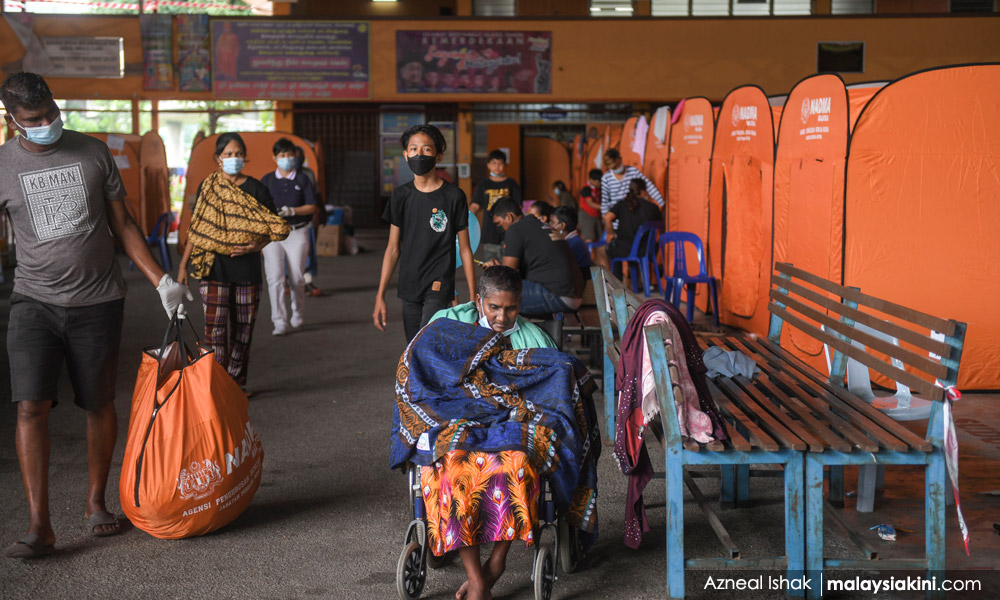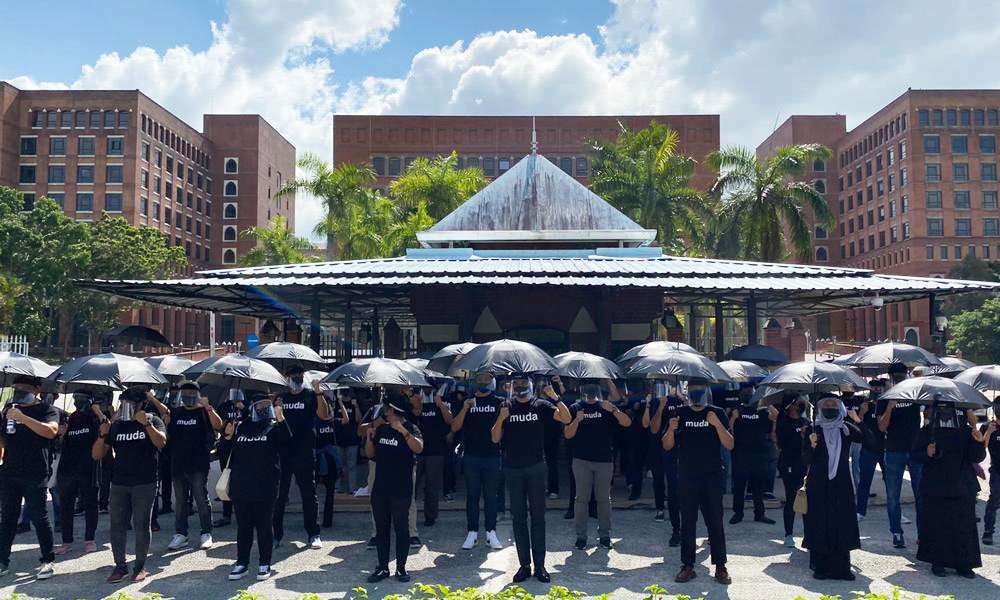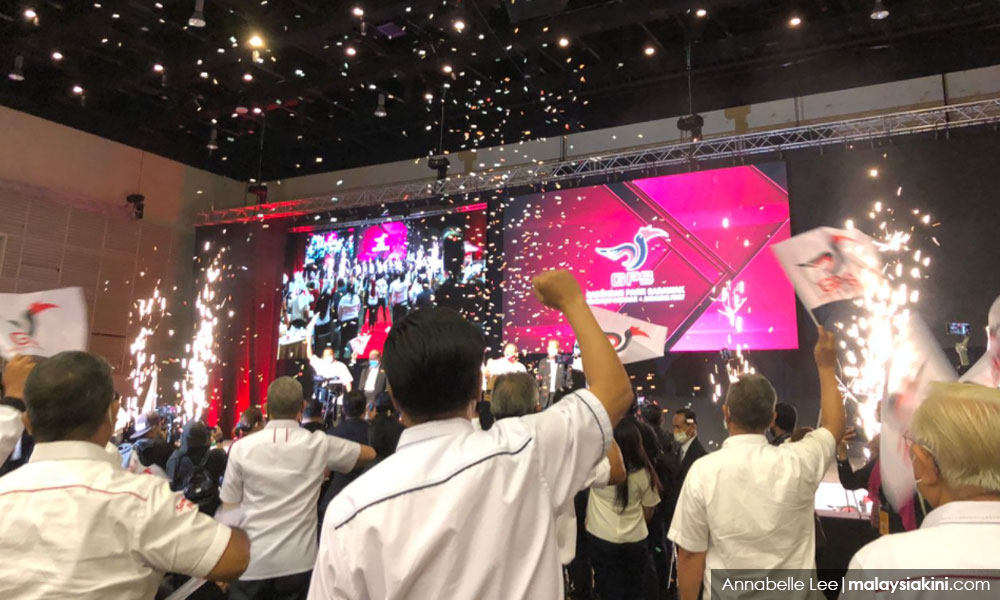The year 2021 was an especially difficult year for Malaysia, with deaths from Covid-19 reaching over 31,000, devastating mismanaged floods, and yet another non-consultative political leadership transition taking place amidst perennial lockdowns, a not-yet recovered economy and growing hopelessness.
It is easy to ignore the impressive successes – an almost-comprehensive vaccine programme, persistent resilience and stronger bonds among Malaysians, greater push-back against entrenched racism and inequalities and widening demands for better governance, especially from a now more electorally-included young.
Malaysia is undergoing profound changes. New narratives and political engagement are emerging out of the Covid-19 pandemic and its political travails. The country is dealing with a political reckoning as it experiences the most serious crisis it has ever faced and is still facing.
As the year ends, it is important to look back and forward. Below I outline a few of the major shifts taking place, suggesting that despite the arguably unprecedented strain, ordinary Malaysians continue to inspire in their fortitude.
Without question, the heroes of the year are ordinary Malaysians, those who volunteered in the floods, braved the pandemic to provide livelihoods for their families, stood in line to be vaccinated after, in some cases, wrestling for hours to get an appointment, and throughout reached out to support each other.

Leaders exposed
The place where there has been inadequate support is from national leaders. In fact, if there has been one striking feature of political leadership in 2021, it is the lack of it.
Despite having two prime ministers, neither has stood out for moving the country forward. Muhyiddin Yassin was a political survivor who failed to survive and his (still) largely unknown successor Ismail Sabri Yaakob is seen as a seat holder, holding on until national elections.
Lacking public mandates, both men have held onto the premier position by pandering to their fellow elites, either through patronage or, in the case of the latter, failing to secure political accountability for abuses of power.
With the exception of the Covid-19 vaccine implementation, policies have been on autopilot without major innovations in how to address the country’s challenges.
This lack of innovation has stood out when there has been a need to step up during crises. Among the worst moments of the year was the lack of empathy elites had shown those in harm’s way.
From the still disgraceful handling of the May LRT crash to the disdain shown by national leaders of the suffering of flood victims in December, political elites have too often shown repeated lack of statesmanship.
They come to the scene after the fact with “relief gifts” labelled with their names and photos paid for by taxpayers. Even supposed technocrats in office have pandered to the myth that power is about the person in office rather than the office itself. Any notion of public service is still beholden to the idea of positions as personal service.
The excesses of political elites have been exposed. Excesses this year are not just about kleptocracy but in the everyday practice of power. Increasingly there is a lack of competence at the helm. At year’s end, fewer Malaysians see their leaders as ‘saviours’ and their government as the dominant solution to problems.
Recalibrating political opposition
Shifts in perceptions of leaders extend beyond those in the national government to the political opposition as well. Defeated in repeated electoral drubbings in Malacca and Sarawak, Pakatan Harapan is in denial of the need for a significant leadership change.
As with Umno and PN, its leaders are holding on to the view that power is about themselves rather than the issues and constituents they are supposed to represent.
The Harapan opposition coalition lost its “reform” lustre in office and subsequently, any glitter it had has faded in post-Sheraton number games, MOU deals and persistent political infighting.
A failure to reform itself, regenerate and reconnect to its political roots has left it facing the same fate as Umno, a shrinking political base and growing internal splits. 2021 witnessed the further consolidation of new opposition alliances in the form of Muda and Warisan.

Still nascent and untested nationally, these parties differ in that they embrace a more inclusive “Malaysian” identity and more openly repudiate the race-based politics of the past. It is too early to assess whether they will gain traction. They do join the other “new political kids on the block” as the political choices on offer are broadening for Malaysians.
New political narratives
Importantly, in politician failings, citizens are becoming more empowered, less afraid to speak out and act to address the challenges they are facing.
The level of public criticism this past year was unprecedented. Part of this is raw anger and open anxiety. Part of this is also a product of deepening democracy in Malaysian society.
The current government lacks the legitimacy to dampen the negative sentiments, opting to pander to its traditional base and close itself off to the now-no-longer silent discontent in its performance.
The continued stupidity of some of the political responses, from debates over whiskey labels and claims of lizard droppings, remains baffling.
What is striking is larger numbers who care even less for politics (and politicians) at all. There has been an expansion of social networks in society to address local issues. The response to the December floods speaks to a broader trend where citizens are finding solutions themselves.
As the economy has languished, there has simultaneously been a rise in entrepreneurship, particularly among Malays and the young.
Politicians no longer set the political stage as they did before. There is greater pluralism of views and new voices. Civil society, academia, business and social media now lead in discussions of the economy, environment and social policy. 2021 yielded a stronger and strengthening society, despite the hardships.
Looking ahead
Many questions where these changes will take the country. Pointing to the victories by incumbents in state elections in Malacca and Sarawak and with dismissals of legal charges and weak interventions to address abuses of power, many believe the country is moving back to the past. They are wrong.
Similarly, ahistorical idealistic elite sentiment hoping for a “reset” is also misplaced. Today’s new conditions will set the direction ahead.
Looking back, 2021 will be seen as a year of transition, a painful reckoning of exposed realities. We see two paths emerging.

The two state elections witnessed the dominance of nostalgic anxiety. This will most certainly be one path ahead, finding comfort in familiar narratives. Race and religion continue to be the easy and go-to points of political rhetoric, especially for those unable to imagine anything else.
At the same time, developments this year suggest growing demands for better governance – not just broad notions of reform or “reformasi”, but more realistic expectations of solutions to problems.
These include a wide range of issues from climate change to rethinking approaches to inclusion and poverty. 2021 points to greater pluralism, pragmatism and policy ideas ahead.
The structure of politics is also changing. As its elites came together in common practices, shared political interests and deals, the righteous polarised positions of political loyalties have become unhinged.
The effect has been an evolving shift that will continue to evolve. 2021 shows, however, that ordinary Malaysians are leading and will continue to do so ahead. - Mkini
BRIDGET WELSH is a senior research associate at the Hu Fu Centre for East Asia Democratic Studies and a senior associate fellow of The Habibie Centre. She currently is an honorary research associate of the University of Nottingham, Malaysia's Asia Research Institute (Unari) based in Kuala Lumpur. She tweets at @dririshsea and wishes all readers a happy new year ahead.
The views expressed here are those of the author/contributor and do not necessarily represent the views of MMKtT.




No comments:
Post a Comment
Note: Only a member of this blog may post a comment.